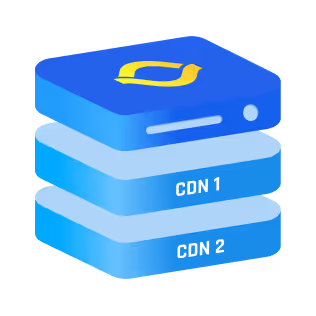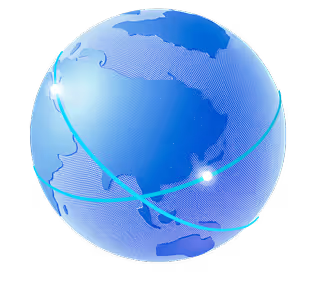Table of contents
A Content Delivery Network (CDN) and an Internet Service Provider (ISP) serve different roles in the internet ecosystem. An ISP provides internet access to users, allowing them to connect to the web, while a CDN enhances the delivery of content from servers to users, optimizing performance and speed.
{{cool-component}}
Here are the main differences:
Primary Function
- ISP: The primary role of an ISP is to provide internet access. ISPs connect users to the internet, enabling them to access online content and services.
- CDN: A CDN focuses on delivering content efficiently. It distributes copies of content across various servers globally to reduce latency and improve load times.
Infrastructure
- ISP: ISPs maintain a wide range of infrastructure, including data centers, routers, switches, and cables, to facilitate internet connectivity. They manage the network that connects users to the internet.
- CDN: CDNs consist of a network of strategically placed servers known as Points of Presence (PoPs). These servers cache and deliver content from the nearest location to the user, reducing latency and improving speed.
The network for CDN is volatile, meaning you won’t be getting the same level of service in different parts of the world. CDNs implemented in China are a great example of this disparity.
Point of Presence (PoP) and Internet Exchange Point (IXP)
- ISP: ISPs connect to various Internet Exchange Points (IXPs) to exchange data with other networks. This allows ISPs to route traffic efficiently and manage internet traffic loads.
- CDN: CDNs also utilize PoPs and IXPs. PoPs are strategically placed to cache content close to users, while IXPs facilitate the efficient exchange of data between different networks, reducing latency and improving content delivery.
Service Scope
- ISP: ISPs provide a broad range of services, including internet access, email hosting, web hosting, and more. Their focus is on connecting users to the internet and supporting online activities.
- CDN: CDNs specialize in content delivery. Their services include caching, load balancing, and optimizing the CDN delivery of digital content to users worldwide.
End User vs. Content Delivery Focus
- ISP: ISPs primarily focus on end-user connectivity, ensuring that individuals and businesses can connect to the internet and access online services.
- CDN: CDNs are focused on content delivery, ensuring that digital assets such as web pages, videos, and files are delivered quickly and reliably to users worldwide.
Handling Data
- ISP: ISPs manage the flow of ISP data between users and the internet. They provide the bandwidth and infrastructure necessary for data transmission.
- CDN: CDNs optimize the delivery of data by caching content closer to users and using efficient routing methods. This enhances the speed and reliability of content access.
Performance Optimization
- ISP: ISPs are responsible for providing a stable and high-speed internet connection, but they do not typically optimize the content itself.
- CDN: CDNs enhance performance by reducing latency through local caching, load balancing, and using advanced routing techniques to deliver content more quickly.
Despite these differences, both ISP and CDNs are capable of experiencing outages, be it global or local outages!


.png)
.png)
.png)